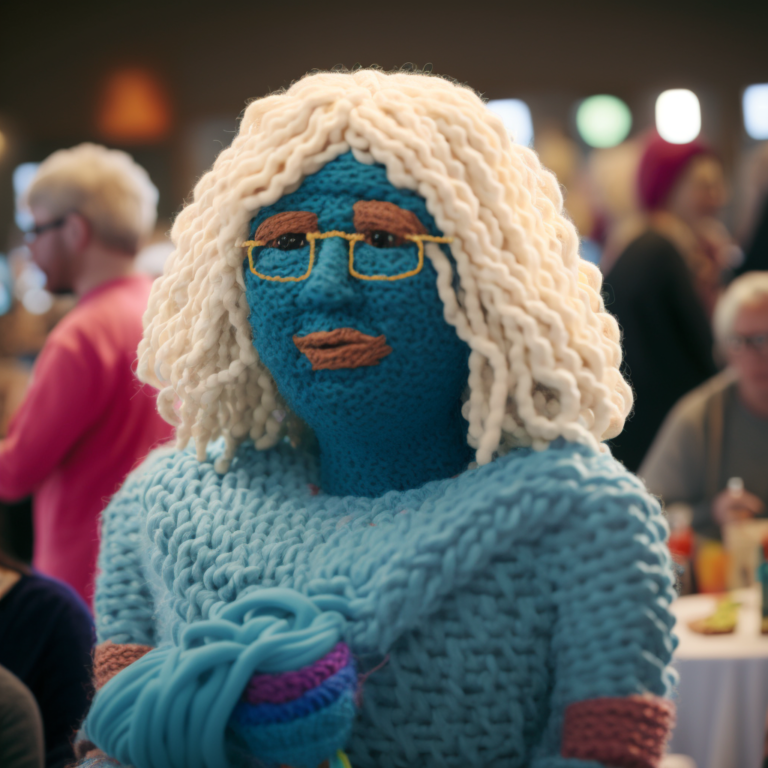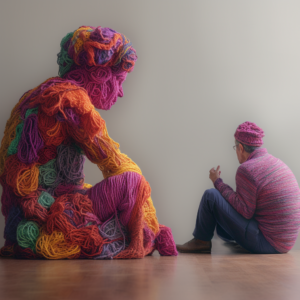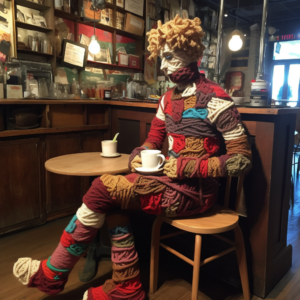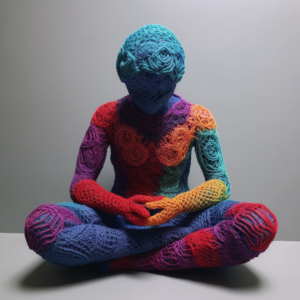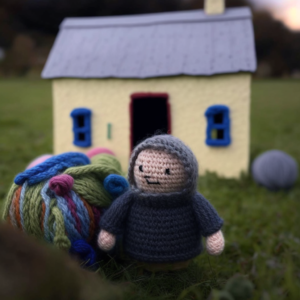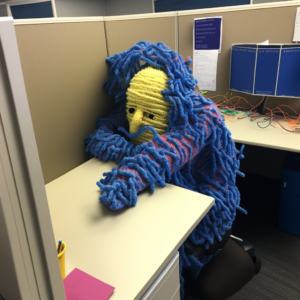-
Table of Contents
Autism Social Event Support: Introduction
Autism Social Event Support is a crucial aspect of helping late-diagnosed autistic adults navigate social situations. Friends and family can play a significant role in providing support and understanding to individuals with autism, especially in social events. With the right autism social event support, autistic individuals can feel more comfortable and confident in social situations, leading to improved social skills and overall well-being. In this article, we will discuss how friends and family can help late-diagnosed autistic adults navigate social situations.Understanding Autism: Tips for Autism Social Event Support
Autism is a neurodevelopmental disorder that affects communication, social interaction, and behavior. It is a spectrum disorder, which means that it affects individuals differently. Some people with autism may have difficulty with social situations, while others may have difficulty with communication or repetitive behaviors. Late-diagnosed autistic adults may have a harder time navigating social situations, but with the support of friends and family, they can learn to manage and enjoy social events. One of the most important things that friends and family can do to support late-diagnosed autistic adults is to understand their needs. Autistic individuals may have difficulty with sensory processing, which means that they may be sensitive to certain sounds, lights, or textures. They may also have difficulty with social cues, such as body language or tone of voice. By understanding these needs, friends and family can help create a comfortable and supportive environment for the autistic individual. Another way that friends and family can support late-diagnosed autistic adults is by helping them prepare for social events. This may include discussing the event beforehand, providing information about the venue or the people who will be attending, and helping the individual plan their outfit or transportation. By providing this support, friends and family can help reduce anxiety and increase confidence. During social events, friends and family can continue to provide support by being aware of the individual’s needs. This may include helping them navigate social interactions, such as introducing them to new people or helping them join a conversation. It may also include providing a quiet space for the individual to take a break if they become overwhelmed. By being attentive and supportive, friends and family can help the individual feel more comfortable and included in social situations. It is also important for friends and family to be patient and understanding. Autistic individuals may have difficulty with social situations, and it may take time for them to feel comfortable and confident. By being patient and understanding, friends and family can help the individual build their social skills and feel more confident in social situations. Finally, friends and family can support late-diagnosed autistic adults by encouraging them to participate in social events. While it may be tempting to avoid social situations that may be challenging, it is important for autistic individuals to have opportunities to practice their social skills and build relationships. By encouraging and supporting their participation in social events, friends and family can help the individual develop their social skills and feel more connected to their community. In conclusion, late-diagnosed autistic adults may have difficulty navigating social situations, but with the right autism social event support from friends and family, they can learn to manage and enjoy social events. By understanding their needs, helping them prepare, providing support during events, being patient and understanding, and encouraging their participation, friends and family can help autistic individuals build their social skills and feel more confident and connected in social situations.Navigating Social Situations: A Guide for Late-Diagnosed Autistic Adults
Navigating social situations can be a challenge for anyone, but for late-diagnosed autistic adults, it can be particularly daunting. Autism is a neurodevelopmental disorder that affects communication, social interaction, and behavior. Many autistic adults are diagnosed later in life, which means they may have spent years struggling to understand why they feel different from others. One of the biggest challenges for late-diagnosed autistic adults is navigating social events. Parties, gatherings, and other social situations can be overwhelming and anxiety-inducing. However, with the right autism social event support from friends and family, autistic adults can learn to navigate these situations with greater ease. The first step in providing support is to understand the challenges that autistic adults face in social situations. Autistic adults may struggle with nonverbal communication, such as interpreting facial expressions and body language. They may also have difficulty with small talk and understanding social cues. Loud noises, bright lights, and crowded spaces can be overwhelming and cause sensory overload. To help autistic adults navigate social situations, it’s important to provide clear and direct communication. Avoid using sarcasm or indirect language, as this can be confusing. Instead, be straightforward and clear in your communication. If you’re planning a social event, provide as much information as possible in advance, such as the location, time, and expected dress code. It’s also important to be patient and understanding. Autistic adults may need more time to process information and may struggle with sudden changes in plans. If plans change, be sure to communicate this clearly and give the person time to adjust. Another way to support autistic adults in social situations is to provide a quiet space where they can take a break if needed. This could be a separate room or a quiet corner where they can go to recharge and decompress. If the event is particularly overwhelming, it may be helpful to have a designated “buddy” who can provide support and help the person navigate the event. Finally, it’s important to be inclusive and accepting of autistic adults. Avoid making assumptions or judgments based on their behavior or communication style. Instead, take the time to get to know them and understand their unique perspective. Celebrate their strengths and interests, and be open to learning from them. Navigating social situations can be a challenge for late-diagnosed autistic adults, but with the right autism social event support from friends and family, it can be much easier. Providing clear and direct communication, being patient and understanding, providing a quiet space, and being inclusive and accepting are all ways to help autistic adults feel more comfortable in social situations. By working together, we can create a more inclusive and supportive community for all.Building a Support System: How Friends and Family Can Help Autistic Adults Thrive in Social Settings
Late-diagnosed autistic adults may have spent years struggling to understand social cues and norms, and may have developed coping mechanisms that are not always effective. However, with the right autism social event support, late-diagnosed autistic adults can learn to navigate social situations and thrive in social settings. One of the most important sources of support for late-diagnosed autistic adults is their friends and family. Friends and family members can provide emotional support, help with social skills training, and offer practical assistance in social situations. Emotional support is crucial for late-diagnosed autistic adults. Many people with autism struggle with anxiety and depression, and having a supportive network of friends and family can help alleviate these feelings. Friends and family members can offer a listening ear, provide encouragement, and help the individual feel less isolated. Social skills training is another important aspect of support for late-diagnosed autistic adults. Many people with autism struggle with social interaction, and may not understand social cues or norms. Friends and family members can help by providing guidance on appropriate social behavior, and by modeling social skills in a supportive environment. Social skills training can include role-playing, practicing conversation skills, and learning how to read nonverbal cues. Practical assistance in social situations can also be helpful for late-diagnosed autistic adults. For example, a friend or family member can accompany the individual to social events, provide a buffer in overwhelming situations, or help the individual navigate unfamiliar social settings. This can help the individual feel more comfortable and confident in social situations, and can reduce anxiety and stress. It is important for friends and family members to be patient and understanding when supporting late-diagnosed autistic adults. It may take time for the individual to learn new social skills, and there may be setbacks along the way. However, with consistent support and encouragement, late-diagnosed autistic adults can make progress and feel more confident in social situations. In addition to support from friends and family, late-diagnosed autistic adults may also benefit from professional support. This can include therapy, social skills groups, and other resources designed specifically for individuals with autism. Professional support can provide additional guidance and resources, and can help the individual develop a more comprehensive support system. Late-diagnosed autistic adults can benefit greatly from the support of friends and family in navigating social situations. Emotional support, social skills training, and practical assistance can all be helpful in building confidence and reducing anxiety. With patience, understanding, and consistent support, late-diagnosed autistic adults can learn to thrive in social settings and build meaningful relationships.Autism Social Event Support: Conclusion
Friends and family can play a crucial role in supporting late-diagnosed autistic adults navigate social situations. By understanding their unique needs and challenges, providing emotional support, and helping them develop social skills, loved ones can help autistic adults feel more comfortable and confident in social settings. It is important to approach autism social event support with empathy, patience, and a willingness to learn about autism and how it affects individuals. With the right support, late-diagnosed autistic adults can thrive socially and build meaningful relationships with others.Similar Articles

Understanding Autism: Crucial Information for Friends and Family
Autism, or Autism Spectrum Disorder (ASD), is a complex, multifaceted condition that affects individuals in a variety of ways. For friends and family members of

Mindfulness and Autism: Exploring the Benefits of Meditation for Late-Diagnosed Autistic Adults
Table of Contents Mindfulness and Autism: Introduction Understanding the Connection Between Mindfulness and Autism Mindfulness-Based Interventions for Autism: Current Research and Future Directions The Benefits

Recognizing the Signs of an Autistic Meltdown
An autistic meltdown can be overwhelming and distressing for both the individual and those around them. Recognizing the signs of an impending meltdown can help prevent it from escalating. Common signs include increased anxiety, sensory overload, and difficulty communicating. It’s important to provide a safe and calming environment and offer support and understanding during and after the meltdown.

